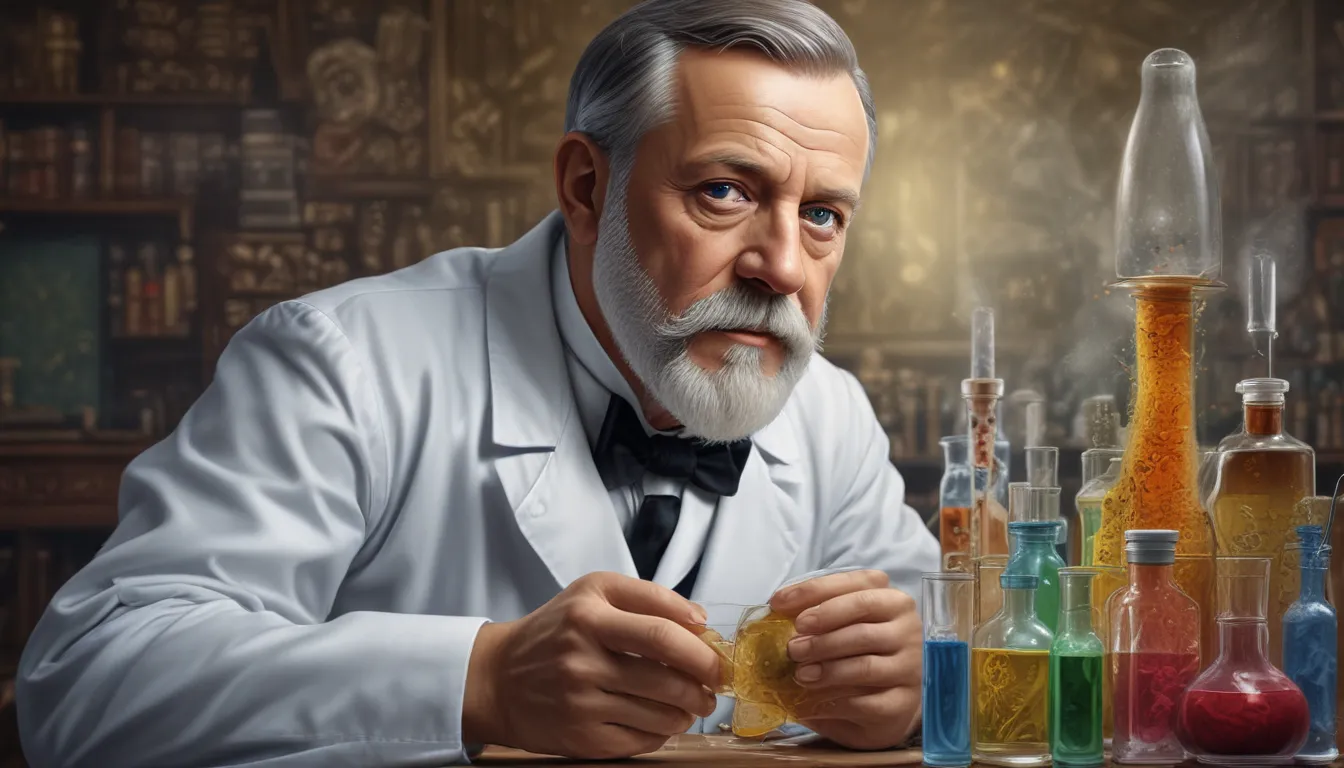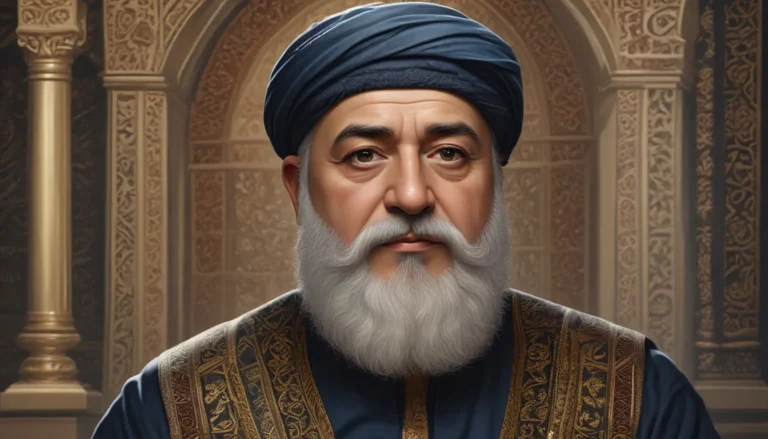The images in our articles may not match the content exactly. They are used to grab your attention, not to show the exact details in the text. The images complement the text but do not replace it.
Louis Pasteur, a renowned French scientist, is known for his groundbreaking discoveries in the fields of microbiology and immunology. His contributions have revolutionized medicine, shaping our understanding of bacteria, vaccines, and food safety. While many are familiar with pasteurization, Louis Pasteur’s life and work hold surprising facts that shed light on his remarkable contributions to the scientific world. Let’s delve into eight fascinating facts about Louis Pasteur that showcase his pioneering spirit and unwavering dedication to scientific research.
Unveiling Louis Pasteur: The Man Behind the Discoveries
Louis Pasteur’s name is synonymous with pasteurization and vaccination, two key areas where he made significant breakthroughs. His work not only revolutionized the dairy industry but also saved countless lives through the development of vaccines for deadly diseases. Louis Pasteur’s influence extended beyond his scientific achievements and into the realm of teaching and mentoring future generations of scientists.
The Revolution of Pasteurization: Ensuring Food Safety
Louis Pasteur’s most significant contribution to society was the invention of pasteurization, a process that involves heating food and beverages to eliminate harmful bacteria. This groundbreaking technique has become a cornerstone of food safety, particularly in the dairy industry. Through pasteurization, Louis Pasteur ensured safer consumption of milk and other products, leading to a significant reduction in foodborne illnesses.
Vaccination: Louis Pasteur’s Lifesaving Discovery
Louis Pasteur’s pioneering work in the development of vaccines has had a profound impact on public health. By exposing individuals to weakened forms of pathogens, he was able to stimulate the immune system to build immunity against diseases such as rabies and anthrax. Louis Pasteur’s revolutionary approach to vaccination has saved countless lives worldwide, cementing his legacy as a champion of preventive medicine.
The Birth of Microbiology: Louis Pasteur’s Germ Theory
Louis Pasteur’s germ theory of disease transformed the field of microbiology. By proposing that diseases were caused by microorganisms rather than supernatural events, he laid the foundation for modern medicine. His groundbreaking research on the role of bacteria and viruses in disease transmission revolutionized our understanding of infectious diseases and paved the way for effective treatment and prevention strategies.
Defying Tradition: Louis Pasteur’s Battle Against Spontaneous Generation
In the 19th century, the prevailing belief was that living organisms could spontaneously generate from non-living matter. Louis Pasteur’s experiments definitively disproved this theory, showing that microorganisms only originated from preexisting living organisms. His research on biogenesis provided crucial evidence that continues to shape our understanding of the origins of life and the spread of disease.
Saving Industries: Louis Pasteur’s Impact on the Silk Industry
Louis Pasteur’s scientific acumen extended beyond medicine to rescue the French silk industry from a devastating crisis. When disease threatened silkworm populations, he identified the cause as a parasitic infection and developed methods to prevent its spread. Louis Pasteur’s contributions revitalized the silk industry in France, ensuring its continued growth and sustainability.
Advocating for Public Health: Louis Pasteur’s Emphasis on Sanitation
Louis Pasteur recognized the pivotal role of sanitation in preventing the spread of diseases. His advocacy for cleanliness and hygiene led to significant improvements in public health practices. By emphasizing the importance of sanitation, Louis Pasteur played a crucial role in saving lives and reducing the impact of infectious diseases on communities.
Legacy of Mentorship: Louis Pasteur’s Commitment to Education
Louis Pasteur’s dedication to teaching and mentoring future scientists was a cornerstone of his legacy. Through the establishment of the Pasteur Institute in Paris, he created a hub for research and education in microbiology. Many of his students went on to make substantial contributions to the field of science and medicine, carrying forward Louis Pasteur’s commitment to advancing knowledge and innovation.
Louis Pasteur: A Beacon of Scientific Excellence
In conclusion, Louis Pasteur’s contributions to science and medicine have had a lasting impact on society. His pioneering work in pasteurization, vaccination, and microbiology has revolutionized our understanding of disease prevention and treatment. Louis Pasteur’s legacy serves as an inspiration for generations of scientists, highlighting the importance of rigorous experimentation and unwavering dedication to advancing knowledge.
FAQs: Uncovering More About Louis Pasteur
Q: How did Louis Pasteur contribute to the field of microbiology?
A: Louis Pasteur made significant contributions to microbiology by proving the existence of microorganisms and their role in causing diseases. He developed techniques like pasteurization to prevent the growth of harmful bacteria and conducted extensive research on fermentation processes.
Q: What was Pasteur’s most famous discovery?
A: Louis Pasteur’s most famous discovery was the development of the pasteurization process, which revolutionized the food and beverage industry by ensuring food safety through the elimination of harmful bacteria.
Q: How did Pasteur contribute to the concept of vaccination?
A: Louis Pasteur’s work on vaccination laid the foundation for modern immunization practices. By developing vaccines for diseases such as rabies and anthrax, he pioneered the concept of inducing immunity through exposure to weakened pathogens.
Q: What impact did Pasteur have on medicine?
A: Louis Pasteur’s impact on medicine was far-reaching, revolutionizing the understanding and treatment of infectious diseases. His germ theory of disease led to advancements in microbiology, immunology, and public health practices, saving countless lives in the process.
Q: Was Pasteur widely recognized for his contributions during his lifetime?
A: Yes, Louis Pasteur was widely acknowledged for his groundbreaking contributions during his lifetime. He received prestigious awards and accolades, underscoring the profound impact of his work on the fields of science and medicine.
Louis Pasteur’s legacy continues to inspire and influence the scientific community, serving as a testament to the power of relentless curiosity and dedication to advancing knowledge. His remarkable achievements have paved the way for modern advancements in medicine and public health, leaving an indelible mark on the history of scientific exploration and discovery.






